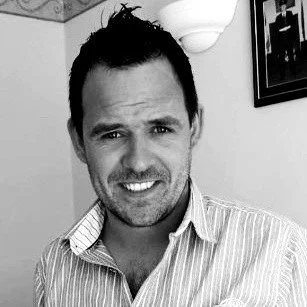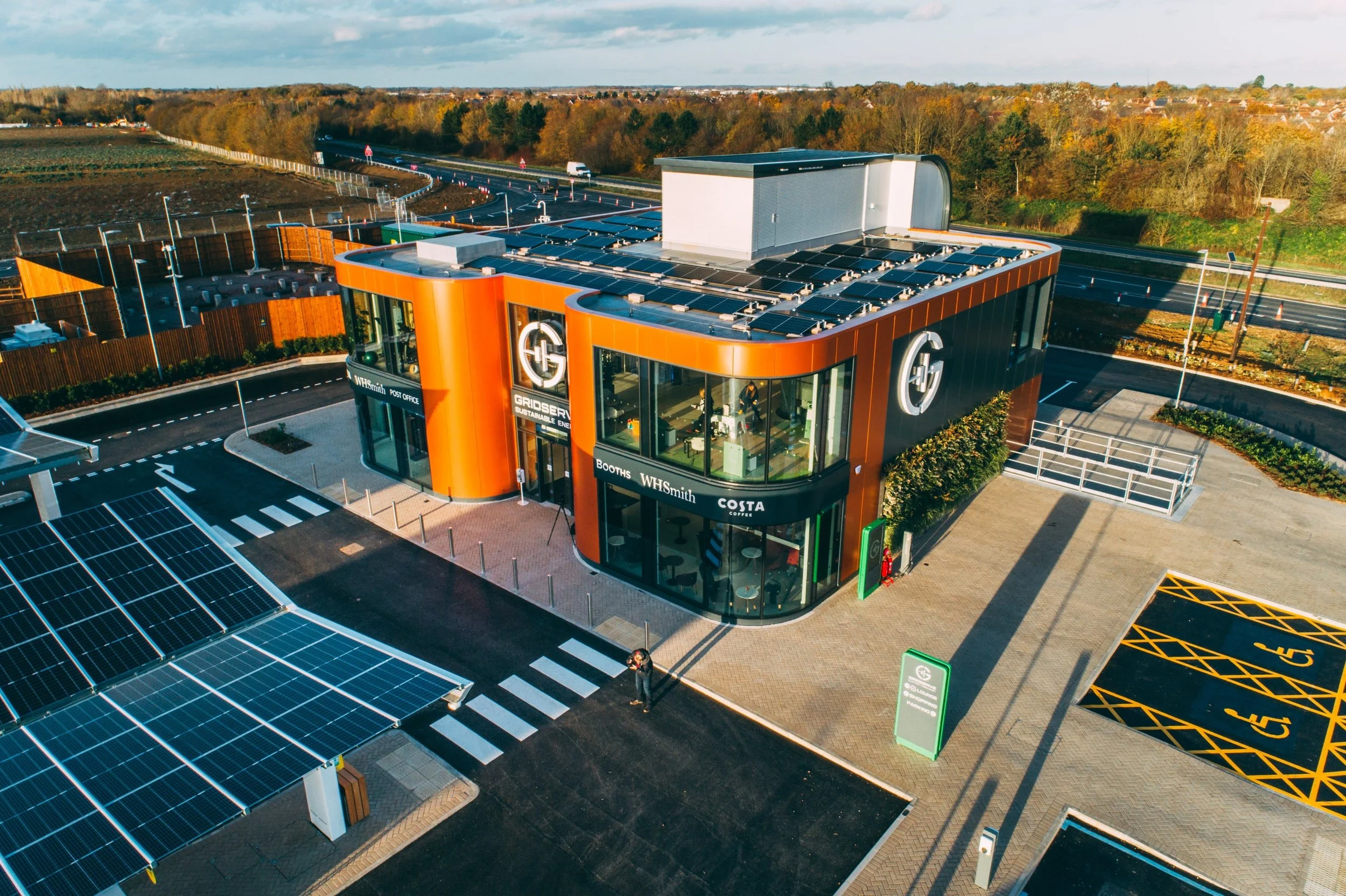Walk the Line: David Higgins from ESS Modular
David Higgins, Head of Manufacturing Ireland at ESS Modular, talks us through Lean production methods, adopting standardised products and increasing throughput by 55%.
David Higgins
Head of Manufacturing Ireland
ESS Modular
Listen to the interview here, or read on below….
Could you tell us a little bit about yourself and how you ended up in offsite construction?
I've been working in my current role as Head of Manufacturing Ireland at ESS Modular for three years now. I’ve 22 years of experience in manufacturing, with a background ranging from metal fabrication to being a business analyst and pharmaceutical operations. In my role at ESS, I assist the manufacturing department and ensure that the correct projects are performed on time, by a proper resource, in an agreed-upon and professional manner.
I've been in manufacturing most of my professional life, working as a Production and Operations Manager within the steel industry, mainly. And then in May 2020, ESS reached out, and the rest is history. I've been here ever since, and I really love it.
When I was working as part of the company at 16 years old, we were a portaloo and portacabin business, so it came as a bit of a surprise to come back again much later and see how far MMC had come. I came in and we had a school in the car park, which just blew my mind. I took a walk around and thought, "This is going to be in the UK in three days’ time." Still, even three years on, that blows my mind.
Poundhill Primary School, built by ESS Modular
Tell us about the successes that you’ve had in the last 12 months
I started here as a Planner before becoming Planning Lead, then Head of Planning and then Head of Manufacturing Ireland. It was a new position, which meant I had to gather data and implement new procedures, all from scratch. Three years on and these procedures are now the Holy Grail of how we operate within ESS. The team has constantly grown as the factory began to expand and the projects got bigger.
Moving forward as a business, we're looking to standardise our product. Our first project with a standardised product is rolling out in the next couple of weeks, and we know it will be hugely beneficial across the business. With this project and the lean methodologies we’re implementing, we’re trying to promote a cultural shift which is going to be challenging.
“Even in the last eight weeks alone, we’ve been seeing huge success with our output after having introduced these lean methodologies, along with piloting Trunk. We’ve gone from producing 6.87 modules per week to a huge 10.63, and that’s all down to new ways of working and new ways of thinking using data.”
Could you explain how your processes have changed?
In the first instance, we worked alongside Lean Consultants to do a full value stream map of the Ashbrook factory and then using that, we removed all of the non-value added time that was being used up on the floor. It encouraged us to think about how we operate and how we move – even if it's just moving machinery slightly, so you're not walking from one end of the factory to another.
It’s subtle changes like this, that give you a jump from producing 6.87 modules per week to 10.63. I come from a continuous improvement background, so I'm always looking for new ways and new processes to improve how we do things.
In addition to that, we’re now also gathering data at a rate of knots. We had never gathered data before, so we can see what the pilot with Trunk has done for us at this stage. Now we've got real-time data within seconds. We can see downtime within seconds, so we can reach the right people within minutes, rather than hours. Problems are being removed instantly, because it flags on everybody's computer. It's fantastic.
What’s the most exciting thing you'll be working on over the next 6 months?
Our first standardised project came out on 18 July. All of our materials will now be standardised. We’ll have standardised module products across Healthcare, Residential and Commercial. We won’t offer bespoke module design going forward. This will mean that the make-up of our modules: our beams, posts, PFCs (Parallel Flange Channels), joists etc. are all standardised. It will make everything a lot quicker, a lot more efficient, and take the stress out of everybody’s work.
For example, looking at St. Luke's Hospital which we worked on over four floors. So, first the ground floor, then you put the first, second and third floor and they were all identical. Every bedroom was the same, every bathroom was the same. When we roll that out across all sectors, there's going to be no stopping.
Delivery of programmes and empathy shown to our clients can be challenging when dealing with the healthcare sector; it’s all about reducing the disruption to the site and the patients. People don't want to be sitting in a hospital bed listening to a construction site. But that's what MMC delivers. It offers a smooth installation with very little disruption.
St Lukes General Hospital
What’s the biggest challenge that you have at the moment?
The biggest challenge we have is this cultural change. With this new standardised approach to design hitting our stage gates, we're taking the client along this journey with us. This is game-changing, because at each stage gate, we're all making comments, we're all making adjustments and then come the next stage gate, all those adjustments have been made and rectified.
Previously we were manually gathering data, which meant it could come to Thursday when you realise, "we're not going to hit our programme targets." Now, between Trunk, the daily meetings, the lean methodologies and the reporting back to the source, I can now tell you by the end of a Monday if we're going to hit our targets by that Friday. It’s a whole new way of working. These subtle changes make a huge difference in the order book. It drives revenue and it lifts morale across the business.
What’s the opportunity for technology in offsite construction at the moment?
I don't understand how someone could say technology isn't welcomed in offsite manufacturing.
“Without technology on the factory floor, you’ve got no visibility. ”
I know there are always lots of discussions across the industry about risk – and yes, two or three years ago these risks were plausible and quite easy to stand over if you were a developer.
Logistically, we all face the risk of modules arriving at site having been damaged along the way, or during the manufacturing process, that is a genuine risk. Payment of a product before it arrives at site, that's another genuine risk. But at ESS we've put these issues to bed.
For one, QA/QC passports are being introduced and shared with our clients, which gives them a level of confidence before, during and after the modules are built. They've access to our systems and they can see the product being developed before, during and after the manufacturing process – another way technology has solved issues.
Gridserve Electric Forecourt, built by ESS Modular
What might be needed for offsite construction to become the main way we build?
I think in the very same way that technology is being gradually accepted in manufacturing facilities, any shift requires a cultural change and an understanding among developers and clients. It is a shift toward the whole industry understanding that MMC brings speed, health and safety, sustainability, and predictability. I think it delivers better building performance and lower defect rates because the quality passports are now eliminating any issues. Confidence and trust in offsite has grown and it has grown fast in the last few years. I'm just excited to be bang, smack in the middle of it.
Is there anything that I should have asked you about today, but haven't?
The immediate future with ISG is very exciting. I'm encouraged by it because I know where ISG want MMC to go. We have a lot of very, very good professionals here and I think it's a great investment. I hope MMC will continue its surge globally with ESS as one of the big players – it’s very exciting!
And to end, who are you passing the mic to next?
“I’m passing the mic to Matthew Egan at Modularize, I think you’ll find he’s got some interesting projects going on for offsite construction, and he’s chair of the Committee to develop British Standards for MMC too”


